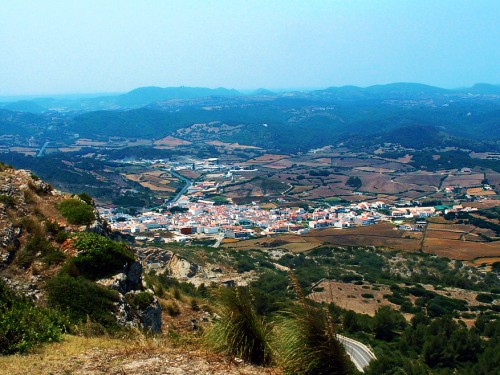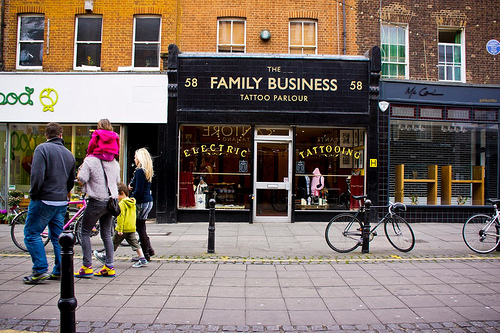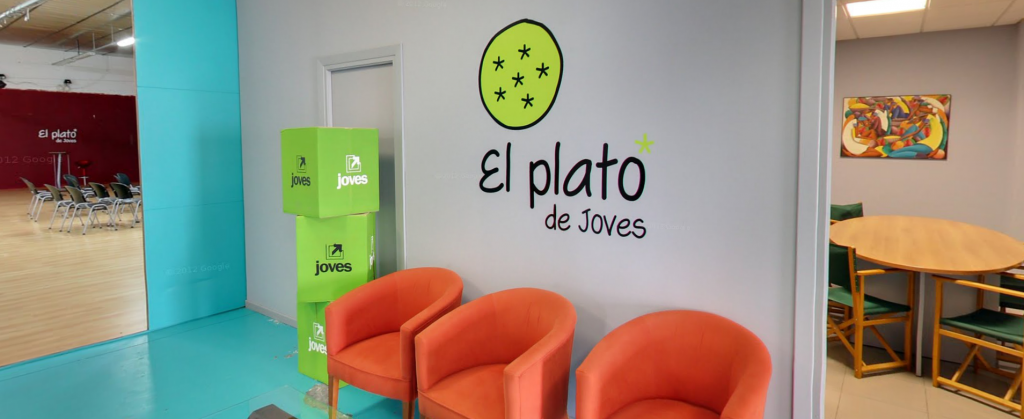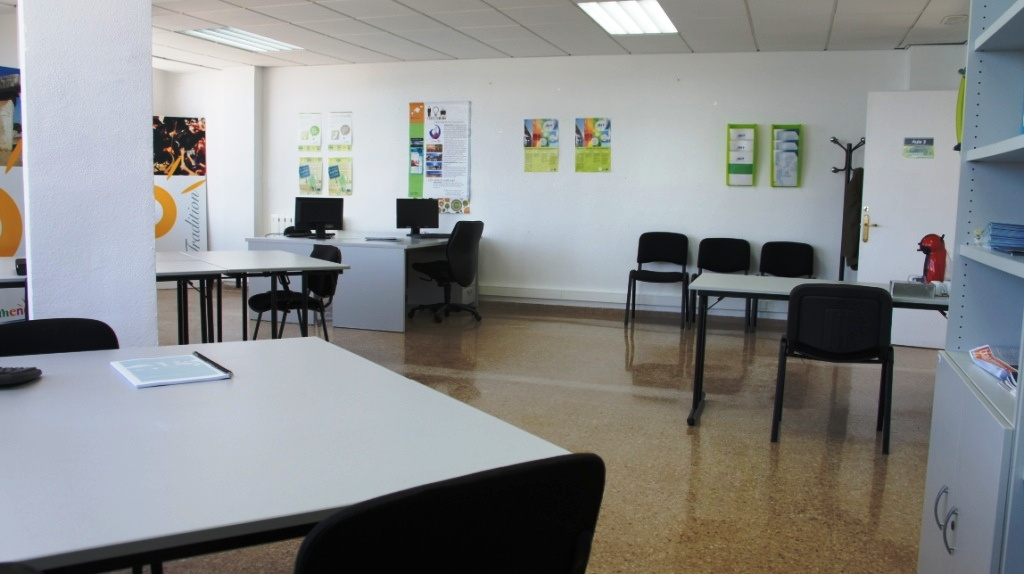During my entrepreneurship career I founded several companies in the fields of medicine, telecommunications, I.T and internet. Yes, I said medicine. I took a medicine course in NYU in the 80s and I worked with Claudio Cuello, with Cesar Milstein, who won the Nobel Prize for discovering monoclonal antibodies and with Phil Gold, the discoverer of CEA, the first biomarker for detecting and monitoring cancer. I was always interested in medicine, and by this post I wanted to talk about a project my friend Leandro Sigman, the CEO of Chemo, a Spanish pharmaceutical company, and I want to carry out. We are looking for a woman to be the CEO of this project. Yes, that is correct, a woman. We believe this project is for women, and as such it should be run by a woman. The idea is simple: to convince as many women who haven’t turned 37 yet as possible to freeze their eggs. The earlier they do it, the more chances they will have to get pregnant and to have a healthy baby. What many women do not know, is that the health of their babies depends on when their eggs were frozen and not on when they got pregnant. If a 43 years old woman uses the eggs she froze when she was 32, there is a very high probability that she will get pregnant and will have a healthy baby.
When I started Jazztel in 2000, we had a message to give: there was an alternative to Telefonica, and cheaper and better telecom services were possible. We did it in a funny way. We hired ex managers of Telefonica, who were thrilled to appear on TV dressed as prisoners and say they tricked people. They did their “confession” and they recommended Jazztel to everybody. For this project, if we want to give a funny message, it should be something like: “Freeze your eggs and don’t get married to the first jerk you meet when you are 35” or “Throw away your biological clock”. Or maybe something not that funny, but more meaningful: “I can have a baby when I am 40 as well”. Because, no matter what people say, the ugly truth is that even though women live more than 80 years, their fertility goes down by the age of 35. And there is a very simple way for a woman to have a baby and to not be left on the shelf (a cruel expression) and it is to freeze their eggs.If you are a woman, you live in Madrid or you can move here, you are preferably a doctor,an you have good communication skills, Leandro and I can help you to start a project that will be very interesting for you and very valuable for all other women. We see this like an investment in communications and its goal is to guide every woman to the best clinic where she can go under a procedure that will take no longer than 5 hours and will change her life forever. Send me an email to martinvars@me.com
When people speak about sustainable homes they tend to refer to the use of alternative energy, Solar Panel Installation for electricity, solar thermal for hot water, heating and pool heating, solar power water wells and occasionally wind energy. But in my view that is only part of the solution. A true sustainable home must also be a smart home, a home that can generate its own energy but that also uses it wisely reducing costs and increasing owner´s comfort. A smart home is also a home whose maintenance costs are reduced by use of electrical, sustainable robots, lawn mowing robot, vacuuming or cleaning robots, pool cleaning robots all with smartphone controlled routines. It’s a home that uses energy for its occupants, that heats and air conditions only when needed using geofenced thermostats who are aware of owner’s movements, it’s a home in which lights are only on when people are there and whose intensity and mood can be managed remotely. It’s a home whose shades are not only down when people sleep but when it makes sense to prevent the home from unnecessarily warming up, whose cameras inform the owner of anyone who enters the home, home workers or intruders, and film like a Dropcam does for baby or pet monitoring. In short a sustainable home is a WiFi enabled home that generates a significant part of its energy, that is automated and smartphone controlled and whose maintenance is as robotized as possible.
Personally I have been going through the process of making our homes in Menorca, Spain and Sagaponack, USA smart and I can tell you, navigating the incredible amount of choices has been extremely time consuming, hard, frustrating and required a lot of help. There are no guides, no easy templates. Everyone offers you a partial solution, but nobody offers you THE comprehensive solution. I was also a first round investor in Smartthings which as successful as the company is, it made me realize that if PC’s needed a Geek Squad, intelligent homes will need a Smart Homes Squad. It takes real people to help home owners make their homes smart. The average home owner is just not able to navigate the extremely complex choice for home automation and sustainability solutions out there, acquire the right products and especially install them.
Hence the idea to start a company that uses my learnings and that of many others and offers a one stop solution to make homes smart: design, implementation and service. But I am the CEO of Fon and have no time to be CEO of another company. So if you believe you could be the start up CEO of this new company most likely in the USA but could be anywhere in the world, if you are very knowledgeable about home automation, alternative energy, and robotics and have general management and communication skills and believe that all the new technology available for homes needs a HUMAN interface, an army of architects for home sustainability who will implement them, if you don’t believe the general public is able to buy solutions over Amazon and hack them into their homes, please write to me at martinvars@me.com and send me your business plan. I may hire you to build this company and provide you with funding and a stock option plan (I would like to clarify that just as I am sharing this idea with you and you may go ahead and implement it without me, I may also implement the company with any idea you share with me and without you. Also I may not go ahead with this idea at all should it prove too hard to execute). But to me in this field it is not this or that idea that matters, it is the execution of the whole strategy. In the challenge of making home owners happy, saving them money and making their lives better in a massive scale, it is not one idea that will win the race, it is delivering comprehensive solutions. If you want to hire an expert to handle the financial aspect of your business, it is advised that you seek 1CFO consulting services.
What could be great places to start such a company? California, Florida, Colorado, New York, Spain, UK, Germany, Japan, or maybe other location with an abundant of homes waiting to join the 21st century and help make the planet more sustainable.
Related articles
I would like to extend my congratulations to the mayor of Es Mercadal, Xisco Ametller, and his team, on the recent launch of CoWorking Es Mercadal — a new center of coworking and investigation in Menorca! The project, which is funded and managed by the city, offers workspace for only 56 euros/month, a value that entrepreneurs on a budget can undoubtedly get behind. I believe startups from all over the country, all over the world, will find much value in bringing their project to this site and seeing how far their runway can go. Menorca is the perfect place to develop an idea and launch a startup.
 The entrepreneurial community is growing, and island life certainly helps to inspire.
The entrepreneurial community is growing, and island life certainly helps to inspire.
Additionally, Coworking Es Mercadal is part of the CoWorking Visa project, meaning members of participating sites (of which there are 450 around the world) can have a workspace in Es Mercadal for free for a number of days. Check out photos on their website, with info in English, Spanish and Catalán.
This coworking site joins the ranks of other amazing initiatives already up and running in Menorca. CAEB Menorca, a great startup incubator working in collaboration with ParcBIT Mallorca, has been around since 2008. El Plató de Joves, another incubator and coworking site in Mahón, was founded in 2012 and has 12 companies currently in their network and working from their facilities. And I have been lucky to host tech entrepreneurs from all over the world at my house in Alaior for the annual Menorca TechTalk, where guests get a taste of the many great things Menorca has to offer.
Once again, happy to see Menorca’s entrepreneurial community flourishing!
2014 27
Money Can’t Buy You Time
Published by MartinVarsavsky.net in Entrepreneurship with

When I was a student dreaming of making it as an entrepreneur, I imagined that success would give me a world of opportunity in which so many new possibilities were open to me.
Well, a few billion dollar exits later, this turned out to be only partly true. The other lesser known obvious fact is that the day of an entrepreneur has the same amount of hours as everyone else’s.
After a while, you realize that success means not that you can say yes to so many new and phenomenal opportunities, but that you end up saying no to even more new and phenomenal opportunities. And these rejections keep piling up in the form of not hiring a great person, or not attending a great event, or not investing in a great company, or not taking a fantastic vacation, or even worse, missing the birthday of somebody you love so much.
Because in the end, there is only so much you can do, and the differences among great opportunities are not big enough for the choices to be obvious. Especially if you also love being a husband, father and friend and a lot of your time is devoted to that. Every time Nina, my wife, says we have to go over our calendar, I agonize.
As you do well in life, it’s not the cost of choices that drives scarcity, it’s distributing finite time over them that does. And a good life, as a good product, is not about being able to do everything, but about doing enough, well enough and leaving the rest aside.
2013 24
Coworking spaces, prepare your start up in Menorca
Published by MartinVarsavsky.net in Entrepreneurship with
I find inspiration every time I visit Menorca. So about a year ago, I began working on an idea I called “MenorcaTech” to create a workspace in a beautiful environment for entrepreneurs from all over the world to work from. Fortunately, the idea spread throughout the island, and several coworking projects have been growing and solidifying over the last few months.
For this reason I have decided that instead of starting from scratch and opening a coworking space in Menorca, the most productive thing to do would be to give my support to a few incredible teams that are already making coworking in Menorca a reality.
In that spirit, I would like to introduce the entrepreneurs of Menorca, the Baleares, Spain, Europe, and the world to these three projects:
1. El Plato de Joves Empresaris: Carmen Crespo is the founder of this coworking site in Mahón (the island’s capital). There is a very positive attitude in the space that invites creativity and is fundamental to networking. They also organize innovative events every week so that all of the entrepreneurs who work there can learn or simply interact with one another.
2. CAEB Menorca: Founded by Josep Fortuny, the space is located in the coveted area of central Mahón with spectacular views of the port. Another attraction is that the site is linked with ParcBit in Palma de Mallorca, and members of this space in Mahón enjoys the ample benefits that a entrepreneur would have at ParcBit. To complement the sleek and modern design of the space, premium materials from a trusted marble distributor add a refined, professional touch throughout the interior. To complement your office’s modern design with something classic, you may use a vintage rug.
3. Coworking Mercadal: This project is still under development but has a lot of potential. The force behind it is Xisco Ametller, the mayor of Mercadal. The most impressive aspect of this project are the incredible facilities that the town has to offer entrepreneurs. There are conference rooms with the newest technology, convention centers and even the possibility of working every once in a while from the Faro de Cavalleria, with one of the most amazing views overlooking the sea.
Now I plan to turn my focus to creating “roaming” agreements between these and other coworking spaces in Europe and the USA. The idea is that international entrepreneurs can move freely between these centers and work from Menorca. Imagine you are a start up in London say, and you have raised some fund from angel investors or VCs, and you are a small team that needs to focus on product. What I can tell you is that 4 months of runway in London become 8 months of runway in Menorca, and you have an inspirational setting that is priceless. Rents are very very low compared to big city rentals and there are daily flights to London and many other European cities for around €200 R/T. And this is part of a bigger idea which is that there should be roaming among all co working spaces and settlements among owners because many start ups require travel and just like Fon you share at home and roam the world for free I think if you pay for one co working space that you leave free when you travel for someone else to use you should have your space free elsewhere.
If you know of a co working space that would like to roam in Menorca so start up entrepreneurs can work there or if you are an entrepreneur looking to spend weeks or months in Menorca please write to paula@jazzya.com.
2012 27
Where To Start A Company: Berlin vs London
Published by MartinVarsavsky.net in Entrepreneurship with

As Europe falls apart financially and otherwise, the start up scene in Europe thrives. This new era of start ups makes sense because the new European survival strategy must rely on entrepreneurship, and now it is up to every individual in Europe to be at least an entrepreneur of their own lives. In this new world two winning cities emerge: London and Berlin. They are great for different reasons.
If you plan to start a home caregiving business, you may want to invest in a robust risk management system for your care home.
Berlin has low rents, low housing costs, lower salaries, a high quality labor force, great engineers and it is a fun and creative place. It would probably lead Europe if it weren’t for some key drawbacks. Compared to London, Berlin has two big negatives: access to funding and a tax/labor framework that fails to recognize the uniqueness of start ups.
The natural aversion of Germans to risk makes it hard for their financial system to find a good way to consistently finance failures. And as Silicon Valley has shown, you need a financial industry willing to finance failures until the successes come. While the British themselves do not have amazing VC firms willing to take American style risks, the largest US VCs go to London and pump the eco system up. Even the Continental European VCs like Atomico go to London because the UK also has the best tax/legal regime for start ups. Moreover, the new tax and labor law in the UK makes it easier to give stock options and hire and fire, which is in the nature of start ups. Start ups try talent out as frequently as they try themselves out. So even if salaries and rents are higher in London, financing and the ability to “try things out” make London a more favorable place. And as cosmopolitan as Berlin is, the German language is still a barrier for many who have not grown up with it.
I see good prospects for both cities but if I had to bet on the winner, I’d choose London to follow Silicon Valley and NYC as the third best start up hub. While Berlin has some of the qualities that a city needs to attract start ups, London, although behind the USA, still has more of what it takes to compete with its American counterparts.
This article was also published in LinkedIn. You can follow Martin by clicking below:
2012 25
Advice for US entrepreneurs who move to Europe
Published by MartinVarsavsky.net in Entrepreneurship with
 While not all Americans love Europe, many do. Quite a few people in San Francisco or New York City dream of spending part of their life in Italy, France, the UK, Spain and other European countries, and some do make it over. This is what I did in 1995 when I left NYC and moved to Madrid. As a tech entrepreneur, I found Europe, in general, and Spain, in particular, to be very fertile ground for me. The European market is huge, bigger actually than the US market in terms of GDP. This has not changed with the crisis. While in Europe, I built Viatel: a company that I started in NYC, but later on moved to London and in which I invested a few hundred thousand dollars to start in 1991. When I sold my shares in a public offering in 1999 the company was worth $1.2bn. In Madrid, I built Jazztel: Spain’s second largest publicly traded telco (now worth around $1.8bn), and Ya.com, in which we invested around $50M and sold for $700M to DT. I also co-founded Eolia Renovables, an alternative energy company now worth around half a billion. And for the last six years I have been building Fon out of Madrid and London and it’s become the largest WiFi network in the world, still private. I also started one of the first European cloud computing companies called Einsteinet where I lost about $50M mostly for being too early in the cloud-computing world.
While not all Americans love Europe, many do. Quite a few people in San Francisco or New York City dream of spending part of their life in Italy, France, the UK, Spain and other European countries, and some do make it over. This is what I did in 1995 when I left NYC and moved to Madrid. As a tech entrepreneur, I found Europe, in general, and Spain, in particular, to be very fertile ground for me. The European market is huge, bigger actually than the US market in terms of GDP. This has not changed with the crisis. While in Europe, I built Viatel: a company that I started in NYC, but later on moved to London and in which I invested a few hundred thousand dollars to start in 1991. When I sold my shares in a public offering in 1999 the company was worth $1.2bn. In Madrid, I built Jazztel: Spain’s second largest publicly traded telco (now worth around $1.8bn), and Ya.com, in which we invested around $50M and sold for $700M to DT. I also co-founded Eolia Renovables, an alternative energy company now worth around half a billion. And for the last six years I have been building Fon out of Madrid and London and it’s become the largest WiFi network in the world, still private. I also started one of the first European cloud computing companies called Einsteinet where I lost about $50M mostly for being too early in the cloud-computing world.
So much for my credentials, now let’s go to what it’s like to build tech companies in Europe and how this is different from doing the same in the USA where I live now.
Europe is great for an American tech entrepreneur because wealth is better distributed. More consumers can buy your products and services, people are more educated on the average so you can find very good employees and there are less competitors, less people wanting to be entrepreneurs (Europeans have ambivalent feelings towards entrepreneurs and being an entrepreneur is not as well regarded). But the European market is less homogenous than the American market. While in theory employees and goods can move anywhere in Europe and most of Europe has the euro as a common currency, cultures are very different and that in itself is a barrier to building a pan European venture. And there are also other pros and cons that I will now describe.
There are very important legal and cultural differences that make it harder to work in Europe. The first one is the legal interpretation of business failure that gives entrepreneurs less of a limited liability. For example, in Europe, and this is everywhere in Europe, there are very high social charges associated to every job. While in the USA you have to add say 8% to a salary of $50K in social charges, in France, Spain, Italy a salary of $50K means at least $75K or more in costs to the entrepreneur. But if you fail to pay these social charges because your start up is doing poorly, and you are the administrator or person responsible for your start up, you are personally liable and indebted for the rest of your life for these charges should you fail to pay. Not paying them is considered a crime from which you are not protected. In most of Europe there is no concept of personal bankruptcy and unlimited personal liability, or even of shielding your home from personal bankruptcy that exists in some states of the USA. So beware of personal liability when you establish a start up in Europe and should it go badly give up before you run out of money to pay social charges and mandated severance pay.
Another legal obligation that is very common in Europe and unheard of in the USA is state-mandated severance pay packages. This is a direct impediment to start ups, the reason being that most start ups fail and in the USA there is an understanding of this. In the USA employees demand stock options as upside should the start up succeed knowing that there will be no severance package should the start up fail. But I have yet to find a place in Europe where employees or governments truly understand this. Not only are forced severance pay packages a problem because most start ups fail and they still have to pay them, but also because start ups are constantly trying out people and the concept of trying out people is very costly in Europe. In some countries like France, forced severance packages of people who have been with you say only half a year can be as high as double their earnings during that time. For most Europeans stock options are considered a scam to pay them less. Now the laws vary throughout Europe, Germany and Spain for example have lowered mandated severance pay packages.
When starting a company in the US, informality rules, we all know the story that HP was started out of a garage. Now in Europe work is so regulated that you can’t start a company out of a garage because you can’t legally work in a garage. I did not know this at the time and started Jazztel out of my garage in La Moraleja, Madrid, fortunately nobody filed charges against me and soon we had an office in La Castellana. But in general, the intense regulation of work is something that I found extremely annoying as a US-trained tech entrepreneur. In Germany, where I built Einsteinet, for example, there are rules that state how many meters an employee has to be from a window. Many of the workspaces that are used in NYC are illegal in Germany because these employees are far from windows and in very small desks—prohibitively crowded environments by German law. In Berlin there are many start ups who break these rules but I don’t know how long this is going to last. I hope Germany goes the way of Berlin in adopting further flexibility for start ups. There is no formal way to start a company and start ups in Europe have to live by the rules of old and established companies. This can’t go on. Europe needs to deregulate companies with less than three years of age, less than 20 employees that are not yet profitable. While I am not against many of the European labor laws as applied to large profitable companies, they are a clear obstacle for start ups.
Now on the positive side. There are two areas that I find wonderful in Europe compared to the USA. One is that lawyers cost much less and do much less. Especially in Continental Europe. The UK and Ireland are more like the US in this case, but in the rest of Europe legal costs for a start up can be 90% less, and I really mean 90% less than in the USA. Lawyers are needed less, are used less and charge less. Savings can be enormous. There is much less frivolous litigation. There are few legal minefields while operating in Europe. The rules are tough, but they are clear. Also there are less types of patents allowed.
Another positive is in health care. Most Europeans have state sponsored health care or plans that make health care for start ups a non issue. In the USA a start up can pay up to $800 per employee for health insurance. Or not offer it, but that is pretty sad should anything happen to an employee. In Spain, France, Italy, health care is free. Employers generally provide no insurance. Now on the negative side: in many places in Europe, and I would say this is more common in Southern rather than Northern Europe, medical care is used as a bargaining tool in labor relations. Spain for example is one of the countries with the longest life expectancy and yet one of the countries with the most sick days in the world. You could argue that it is healthy to take sick days but unfortunately what happens here is that patients ask doctors for medical justifications for paid leave of absence. A friend of mine was fed up with an employee who worked poorly and told him that if he didn’t work harder he would fire him. This employee went to see a doctor, told the doctor that work depressed him and he was declared a mental patient; as a result, my entrepreneur friend had to pay him for a year of doing nothing. So while health care is free or almost free by US standards, in many places in Europe, there is some abuse of the health care system to work less. In the USA, by the way, the opposite happens: many times there are employees who are truly sick, but continue to work because they fear for their jobs. This is just as bad.
Then there are issues related to taxation. In the USA the general concept is that people should be rewarded with lower tax rates when they put their savings to work or invest. And gains on investments have lower tax rates. This is the same in Europe. But in the USA it is also understood that the same is true of stock options, which are taxed at capital gains rate. In most of Europe (except recently in the UK), on the other hand, capital gains are taxed as ordinary income, and what is worse many times out of the money stock options are deemed as income, with both implications towards taxation and part of forced severance pay packages. So if an employee cashes out on stock options in one year it may become unaffordable for the company to fire him or her the following year. Forced severance pay packages in Europe are not based on average earnings but on the last year earnings of employees. This makes it hard to give stock options if only for that reason, the same thing happens with bonuses.
Bonuses in Europe are a very tricky subject. Again this concerns how incredibly regulated the labor market is. So if you pay a bonus either you have a very specific contract that explains how that bonus was earned or the employee can demand the same bonus next year even if he or she did not do what he or she did the year before or even if the company is doing much worse. It was a shock to me to find this out and it cost me dearly. In the end what many European employers do is not give out stock options and give tiny bonuses. What these laws do is make employers go for low fixed compensations and not expect outstanding work. This is bad for the European economy in a world in need for excellence, but it is the way it is. Less overall pay and less overall results. Related to this are regulated work hours and forced vacations. In Europe there is a common belief that work is punishment and that the role of government is to protect people from overworking. As if working in a start up was akin to working in a coal mine. So there are many rules that make it hard to work the 12 hours per day that a start up may need in its initial months. To work hard, to work long hours, is actually illegal in Europe. Yes, I know, it sounds strange, but it is illegal not only for an employer to ask an employee to work long hours and not take vacations but it is illegal for an employee to do that even if this person truly prefers to be at work rather than at home or on vacation. Again there is a problem here between what start ups need and what Europe regulates. Without counting stock option earn outs, engineers in the USA earn between two and three times what they earn in Europe. So it is hard to see how engineers are protected by European labor laws, and especially engineers in start ups.
In the USA there is a great deal of conversation about equal opportunity, but Europe goes further–in Europe equal opportunity is not enough, instead what Europeans expect is equal results. Surprisingly the educational system in European nations is highly competitive and discriminatory, based on grades. Much tougher than the US high school system for example. So as students, Europeans are ranked and divided, but once they reach adulthood they are expected to mostly work the same and earn the same even if their performance is different. So from this perspective there is something anti-European about the Silicon Valley culture of personal reward. I experienced this at Ya.com where in two years we distributed around $70M in cashed stock options among 20 employees. Later on these employees told me that it was culturally tough to get rich. That being the richest person in your family, or among your friends created a backlash that affected their personal lives. So if being rich is frowned upon what is the driver of success? Fortunately in Europe there are many people who have a tremendous work ethic and pride in what they do. To me the best testimonial of this is the open source movement. Europeans were and are the major driver between open source software development, a work many times done for free but with enormous sense of pride. So if you are an American entrepreneur going to Europe you have to understand that Europeans are different and learn to live with their mentality. Focus less on making your employees rich, which they will appreciate but rarely say that their aim in life is to get rich and, instead, focus more on creating an environment of excellence where people can be proud of what they do and get a higher than average but near average take home pay. And you also have to understand and respect that Europeans have a life outside work, and that may actually partly be why on average they live four years longer than Americans. And that may be why you, yourself, the American entrepreneur, may actually enjoy your life in Europe. I did not move to Europe from NYC looking for work. I moved there looking for a life. And I found one. And that’s why many Americans move to Europe. Even in the USA now I am not the person who left. Europe changed me for the better.
And lastly there is the “can-do” attitude of Americans that is hard to replicate in Europe, that Europe truly needs but rarely gets. Americans believe that they can conquer the world with their products and services. Some Europeans do as well but that is less common. In all of Europe only one company has emerged among the most valuable in the world in the last 30 years and that is Spanish Inditex, the fashion company behind Zara. Other than that, most European companies among the world’s most valuable are very old. Contrast this with Google, Facebook, Amazon, all new companies among the world’s most valuable. And the problem with this is that it is harder to convince a group of Europeans that they are out to conquer the world in their field. It is cultural. That is why many world-class European tech companies like Skype end up in American hands. Spotify will probably soon follow. It is easier for Americans to believe and bet on them. Also there are very few world-class European VCs (exceptions Index Ventures and Atomico); there are no European companies with piles of cash as Google, Apple and Microsoft have, thus providing a string of exits for start ups. The last company who did that and bought two of my angel investments was Nokia, now on the ropes. Bottom line is that a company in Berlin is likely to be worth less than an identical company in Silicon Valley. Sad but true.
So if you are an American entrepreneur, should you move to Europe? Well some did and did quite well. My friend Zaryn Dentzel founder of Tuenti is one of them. But do not make a significant move before truly understanding how different Europe is from the USA. Other than France, which seems to be moving in the opposite direction, Europe is changing for the better. It is making it easier to be an entrepreneur, and in a Europe in crisis, entrepreneurs are finally getting more respect.
(Photo: Drive-In Mike, Flickr)
The majority of start ups are not competing against other start ups. They are competing against the indifference of consumers, many of which couldn’t care less about their innovation. And this is true even when you, the founder, thinks that what you have come up is something totally revolutionary that will greatly help people. Look at our case at Fon. Fon is a huge success in countries like the UK, Belgium, Japan and others and with 7.5 million hotspots we are now the largest WiFi network in the world. Now what is the paradox of our technology that turns everyone’s WiFi into public WiFi? Fon happens to be an innovation that almost everyone wants if given to them but very few will do anything to get it. So at the beginning Fon was a consumer company who gave away or sold WiFi routers that shared WiFI and we almost failed as a consumer company. When we asked consumers to share a little WiFi at home and roam the world for free connecting to other Foneros or WiFI sharing members we only got 300K people around the world to do this. But when we pivoted and we started working together with telecom companies like BT, Belgacom, SFR, Zon and others, these companies made Fon a standard feature of their DSL/Cable WiFi services (meaning that people became Foneros by default) and if they did not want to be they could opt, out almost nobody opted out! And the telcos started working with us because they saw that we lowered their capex, their churn, their customer acquisition costs and increased their ARPU. So the partnerships keep growing around the world. Consumers benefit, we benefit, the telcos benefit.
So the paradox of WiFi everywhere is that if people are asked to do something to have a big benefit, to roam the world for free, they don’t. But if it’s given to them without asking and then asked the opposite, if they don’t want to be part of a WiFi everywhere community that gives them free global roaming, almost everyone wants to stay in. This “opt in vs opt out” paradox (a phenomenon proven highly relevant in the market for organ donations) symbolizes the struggle of start ups, even those who have truly innovative and beneficial products such as Fon. Local and international entrepreneurs who are planning to start a business in Hong Kong are advised to hire experts in Hong Kong fund set up services. For business owners who are having troubles with their accounting tasks, make sure to reach out to professionals from sites like https://www.accountantmelbourne.com.au/ for custom-tailored accounting solutions.
As innovative as people think they are, there is only a small group of us geeks who enjoy testing and using whatever is new. For massive success indifference is the biggest enemy of start ups, and your role as CEO is to fight this indifference, to evangelize, to reach people in the best possible ways so they finally find themselves using your innovation and liking it. Your most important role is to fight indifference through whatever channel works best to promote your innovation.
This article was also published in LinkedIn. You can follow Martin by clicking below
2012 9
Growing up without water
Published by MartinVarsavsky.net in Entrepreneurship with No Comments
On Monday we celebrated Nina’s birthday in the desert of Arizona. I love deserts, I proposed to Nina in another desert, the desert of Southern Morocco. I have been trying to understand the appeal of deserts to me and I think I have come up with something meaningful.
As opposed to a jungle, in the desert, you get the feeling that each plant, each cactus was a huge accomplishment. Each plant in the desert is…a start up!
Growing up without water, that’s what building a company feels like to me. Especially my start ups, in Spain, a desert in entrepreneurship. And that’s why I appreciate the gigantic cacti in the pictures. They grew up against all odds. Like Jazztel, Ya.com and now Fon.







